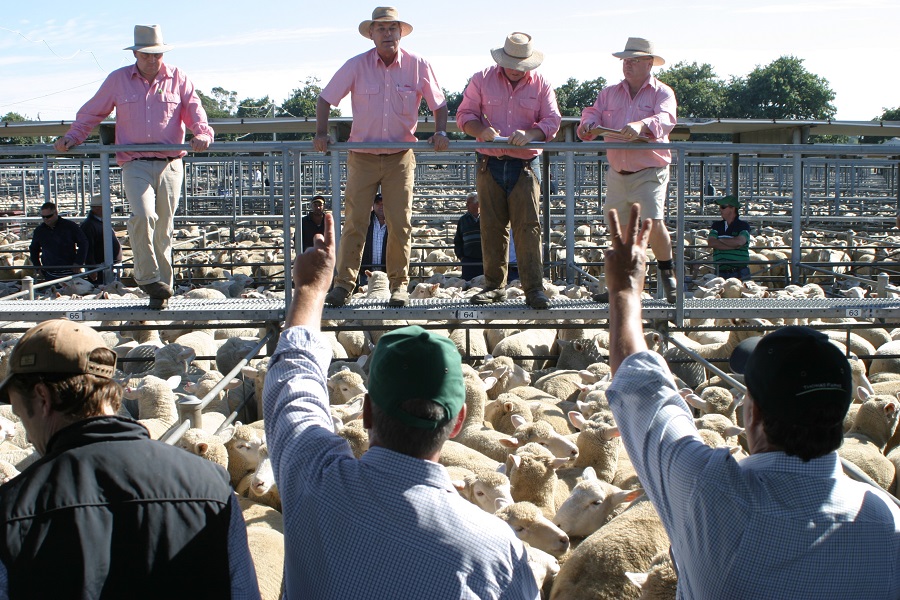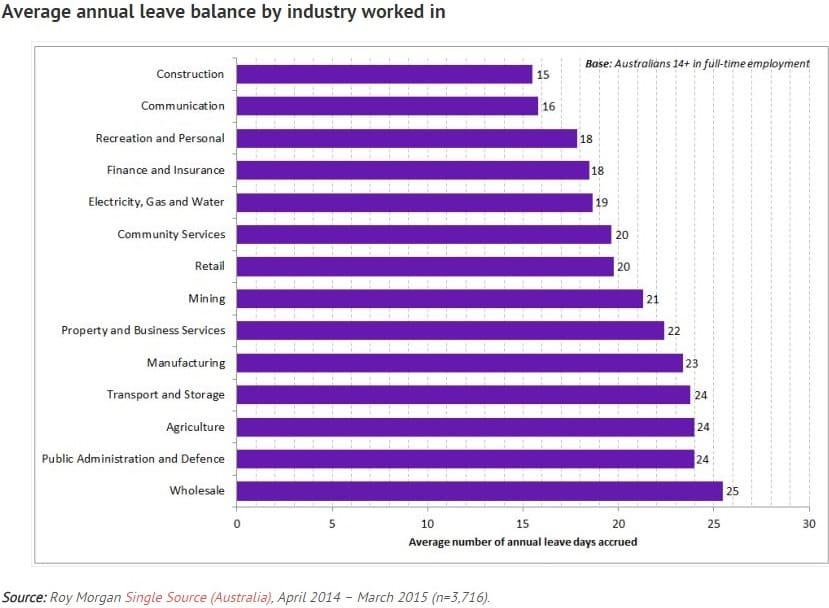Latest listings on Jobs Central:
- Operations Manager, Charlton Feedlot (Teys Australia)
- Feedlot & Farm Manager – The Mount feedlot (Kenny’s Creek Angus)
- Farm Hand – Wylarah, Surat (AA Co)
- Meat Sales Professionals (Uniwell Premium Quality meats)
- Human Resources Manager (Thomas Foods International)
- General Manager, Export Sales (Manildra Meat Co)
- Feedlot Manager – Lockyer Valley Qld (Australian Country Choice)
Click here to access these and other exciting meat and livestock supply chain jobs currently listed on Jobs Central.
SMALL businesses in the wool and lamb industry supply chains may need to review their current leave policies as new figures show the unclaimed leave entitlements owed to Australian employees has reached an enormous 123.5 million days.
Roy Morgan Research figures highlighted that at the new minimum wage figure of $17.29 (released this week), the unclaimed entitlements have a value of approximately $2.1 billion.
As the bar chart published below shows, employees in the agriculture sector were some of the worst offenders, sitting on an average of 24 days leave. The research showed men had on average 22 days of unused leave compared to women with 18 days.
There are many reasons why employees don’t take leave. The most common include a fear that no-one can do their work while they are away; that they want to make themselves indispensable to their employer; or that they will return from leave with a big backlog of work to do, and will need to work long hours to catch-up.
Others may choose to hoard their leave and use it towards a lengthy holiday, save it as a possible contingency if they become seriously ill or accrue their leave so they can be paid out if they are retrenched or dismissed.
Why do employers need to be aware of excessive leave accruals?
It is not uncommon for employees to hold off on claiming leave, however the more time is accrued by individuals the costlier it can get for employers.
Employers need to be aware that when leave is taken or paid out, the rate of pay is the current one at the time the leave is taken or paid, not the time when it was accrued. This can have a major effect for small businesses, especially when rates change (such as the recent 2.5pc minimum wage increase).
Not taking a break from work for a long period of time can also adversely affect employees, leading them to become stressed, tired and unproductive. This is especially true when the work is physically demanding, as is the case in many roles within the beef industry.
What can employers do to avoid employees accumulating leave?
While employers cannot place pressure on an employee to take leave, they do have some discretion as to when employees can be made to take leave.
Meat Processors General Manager Jamie Ginders said employers could direct an employee on annual leave if the request was deemed reasonable.
“Under some awards and registered agreements, employers can direct employees to take paid annual leave if they have an excessive amount of annual leave,” he said.
“An employer can also direct employees to take leave during a shutdown of the business, such as between Christmas and New Year.”
Mr Ginders advised business owners and employers to make sure they were familiar with the National Employment Standards under the Fair Work legislation, which stipulates all arrangements relating to annual leave.
Source: Meat Processors Pty Ltd



HAVE YOUR SAY